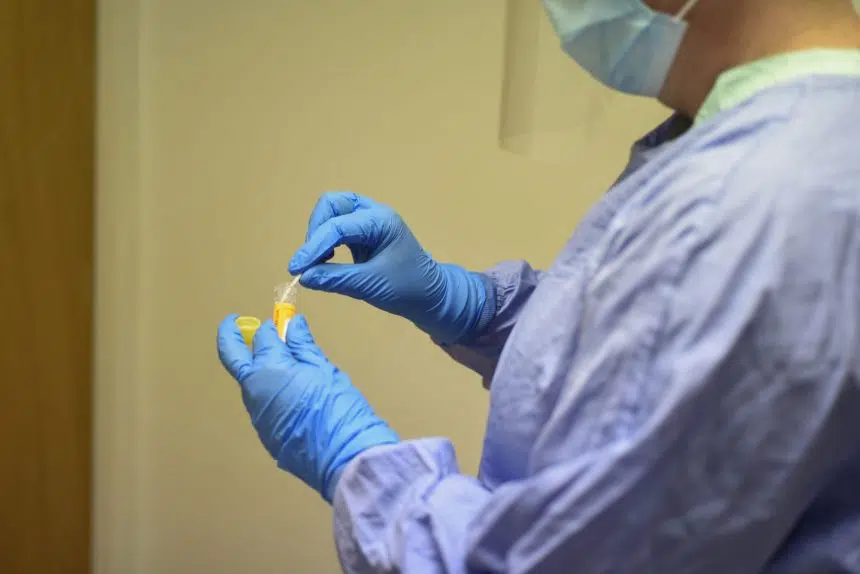With the Saskatchewan Health Authority working to increase daily COVID-19 testing capacities, one union has concerns over current staffing levels to help accommodate that.
“Increasing the capacity is always a good thing. I think testing and monitoring is the way to find our way out from underneath the crush of this pandemic,” said Barbara Cape, the president of the Service Employees International Union West.
“But we do not have enough people in the lab disciplines to complete that lab testing.”
The SHA is aiming towards increasing COVID-19 testing capacity to 4,000 a day. As of Monday, the most tests done in a single day has been 2,129.
Voluntary in-school testing is set to begin on Wednesday at Regina’s Campbell Collegiate. On Thursday, Holy Cross in Saskatoon and Carlton Comprehensive High School in Prince Albert will offer it. Carlton will also offer it on Friday.
“The challenge is going to be huge,” Cape said. “We’ve been dealing with a backlog and trying to triage or prioritize those tests in order to make sure we’re getting timely information for diagnosis and that’s been throughout the course of summer when school was out.
“Now with the increased testing and the drive-through options — we’re testing in Regina and Saskatoon and I believe in other locations throughout the province — that demand is going to increase. More testing because schools are open is only going to compound the problem but I would say folks need to realize what these pressures are so that there’s no sort of undue blame put on lab disciplines who are working their tails off in order to get this information out.”
There are about 780 lab employees across the province. Cape said that’s a decrease of about 100 from levels they were at six to seven years ago.
The SHA said in an emailed statement it will be adding employees to labs in Regina and Saskatoon which would be the equivalent of 50 full-time employees. That includes additional technologists, laboratory assistants and laboratory scientists.
Along with staffing concerns, Cape said there are also infrastructure concerns that have been around for a number of years.
“We’re playing catch-up at a time when we should have been ahead of the curve previously,” Cape said.
Due to the increase and prioritizing of COVID-19 testing, Cape said staff might have trouble keeping up with other tests as well, including cancer, diabetes and blood tests.
“The testing is one thing but the analysis and diagnosis is where we have some pinch points within the system,” Cape said. “Those pinch points include prioritizing COVID tests, which I think is an absolute, but all the numerous other tests that patients, clients and residents require as a part of their daily health-care needs are being put on the back burner.
“Without more people to do that analysis of COVID and do the regular daily work, we have a real concern about a crisis in the staffing and the ability to provide timely information so people can be properly diagnosed.”
Cape said her biggest concern as union president is that employees will be overworked, noting she spoke to someone who had to work a 16-hour shift over the weekend.
“They’re not insurmountable challenges but it’s going to require the SHA, the Ministry of Health and SEIU-West, along with other health-care unions, to put our heads together and collaborate on this,” Cape said.
The SHA said it will continue to work to improve the program to meet the needs of residents in the province.











